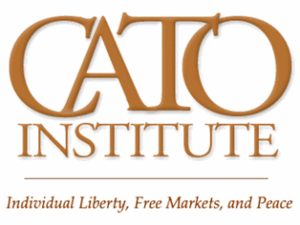
For the first time, the basic billboard regulatory scheme is under attack on constitutional grounds. The lawyers like to make it more complicated, but the question boils down to this:
Does the First Amendment trump the regulation of billboards? Or, to put it another way: Can you regulate billboards without stepping on free speech?
Let’s look at this fight and see why OAAA and IBO are in this together.
When we go to the bank to borrow money, and the bank says, “do those billboards have any value?” we can point to the just-compensation protection as another proof of the underlying value of the assets.
Our customers now buy $7.7 billion a year in OOH advertising.
Today, more than 50 years after the Highway Beautification Act (HBA) was enacted, we’re looking at a court challenge aimed at getting rid of those regulations. At first blush, that may sound inviting. “Let’s get rid of regulation!” But please take a close look.
The case I’m referring to comes out of Tennessee (Thomas v Schroer). The plaintiff is a billboard owner named William Thomas, who has fought with the state DOT for years, and who is not a stranger to court battles. In Memphis, Mr. Thomas convinced a federal judge that Tennessee’s billboard law is unconstitutional because it violates the First Amendment.

State billboard laws, including the one in Tennessee, are modeled on the federal HBA, which says that billboards are allowed in certain zones and are subject to controls on size, lighting, and spacing.
The federal judge in Memphis based his opinion on a US Supreme Court case from 2015 called Reed v Town of Gilbert. That case says regulation of signs cannot be based on content.
A key issue in this litigation focuses on the longstanding regulatory distinction between on-premise and off-premise signs. Those attacking billboard law say this distinction is based on content, and therefore runs afoul of the Reed case on constitutional grounds.
The State of Tennessee and those defending billboard law say the distinction between on-premise and off-premise signs is based on location, not content (and does not violate free speech).
All sides in this high-stakes lawsuit will be well-presented, including the plaintiff, Mr. Thomas. On appeal, he is represented by experienced constitutional lawyers from a non-profit group called The Institute for Free Speech, based in Alexandria, VA.

The State of Tennessee is represented by a solicitor named Sarah Campbell, who earned her law degree at Duke, clerked for Supreme Court Justice Samuel Alito, and worked at the top litigation firm of Williams & Connolly in Washington, DC.
Williams & Connolly represents OAAA in this case, supporting the State.
The US Justice Department, led by conservative Attorney General Jeff Sessions, has weighed in, filing a “friend of the court” brief to support the State’s position that billboard law does NOT infringe on free speech.
The parties have requested oral arguments; we could get a ruling later this year from the US Sixth Circuit Court of Appeals, a four-state territory that includes Tennessee.
The US Supreme Court doesn’t take many cases. But it’s possible, for a number of reasons, that this case may be of interest to the Supreme Court. When you get to the Supreme Court, I can tell you with certainty, you don’t know what could happen.
We have a clear common interest in the outcome. We have a common interest and a self- interest in the protections built into existing law that support value of our inventory.
The First Amendment doesn’t carry around a ruler or a tape measure to figure out if the billboard company is big or little, public or independent. The First Amendment doesn’t care if you are Lamar or if you have one billboard in Lamar, Colorado. When this challenge is decided, it’s going to affect everybody in this industry the same way.
That’s why we’re in this together.
Our two organizations, OAAA and IBO-USA, are made of different alphabet soups. But both groups end with an “A” that stands for “America.” And in my mind, that’s a place where — if government takes down one of your billboards — then government must pay you.
It may get a little bumpy, but we’ll get to that place together.[/vc_column_text][/vc_column][/vc_row][vc_row][vc_column][vc_btn title=”Download PDF” color=”danger” align=”center” link=”url:https%3A%2F%2Fspecialreports.oaaa.org%2Fwp-content%2Fuploads%2F2018%2F04%2FNJFIBOUSA_042618.pdf||target:%20_blank|”][/vc_column][/vc_row]
Published: April 26, 2018